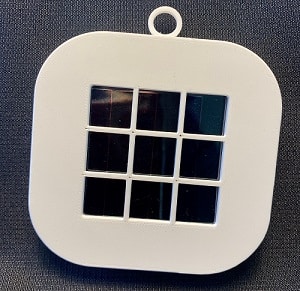With benefits such as environmental friendliness and reduction in operational costs, the light-powered sensor is revolutionary

When costly batteries are not required to be often replaced, the maintenance cost incurred goes down during the preservation process of refrigerated products, ensuring long shelf life and better business.
Keeping this in mind, Pollux has released a new sensor called Hadar Cold that is designed to operate in the temperature range of -20°C to +60°C – by simply harvesting indoor lighting.
Thanks to the integration of Epishine’s solar cell in Hadar Cold, energy harvesting is now possible in very low light levels. Benefits are sustainability and environmental friendliness. Along with that are lowered costs; companies would not have to worry about the operational costs involved in changing batteries.
Part of the Hadar family, the newly launched Hard Cold is one of the wireless, battery-free and maintenance-free temperature and humidity sensors made available by Pollux.
Other applications include smart buildings and smart homes.
“When your business model relies on fresh, delicious and safe to eat food, optimising your entire cold chain to keep things at the right temperature should be your top priority. Today businesses often replace batteries at a predetermined interval, which can result in them replacing a battery that still has 30-40% energy left. Furthermore, batteries and cold climate isn’t a good match, which means that a standard battery can lose as much as 50% of its capacity in temperatures sub -10°C. For Hadar Cold this is not an issue as it runs completely without batteries.” says Lars Mokvist, Pollux.
“Our solar cells are optimised to generate sufficient electricity from ambient light, such as LEDs and fluorescent light to power low energy devices. It can harvest the tiniest amount of energy and an integrated energy store allows the devices to operate for several days in total darkness. Removing the maintenance cost of battery replacement strengthen our customers’ business case, and the reduced usage of disposable batteries benefits our environment.” says Mattias Josephson, VP Business Development, Epishine.






